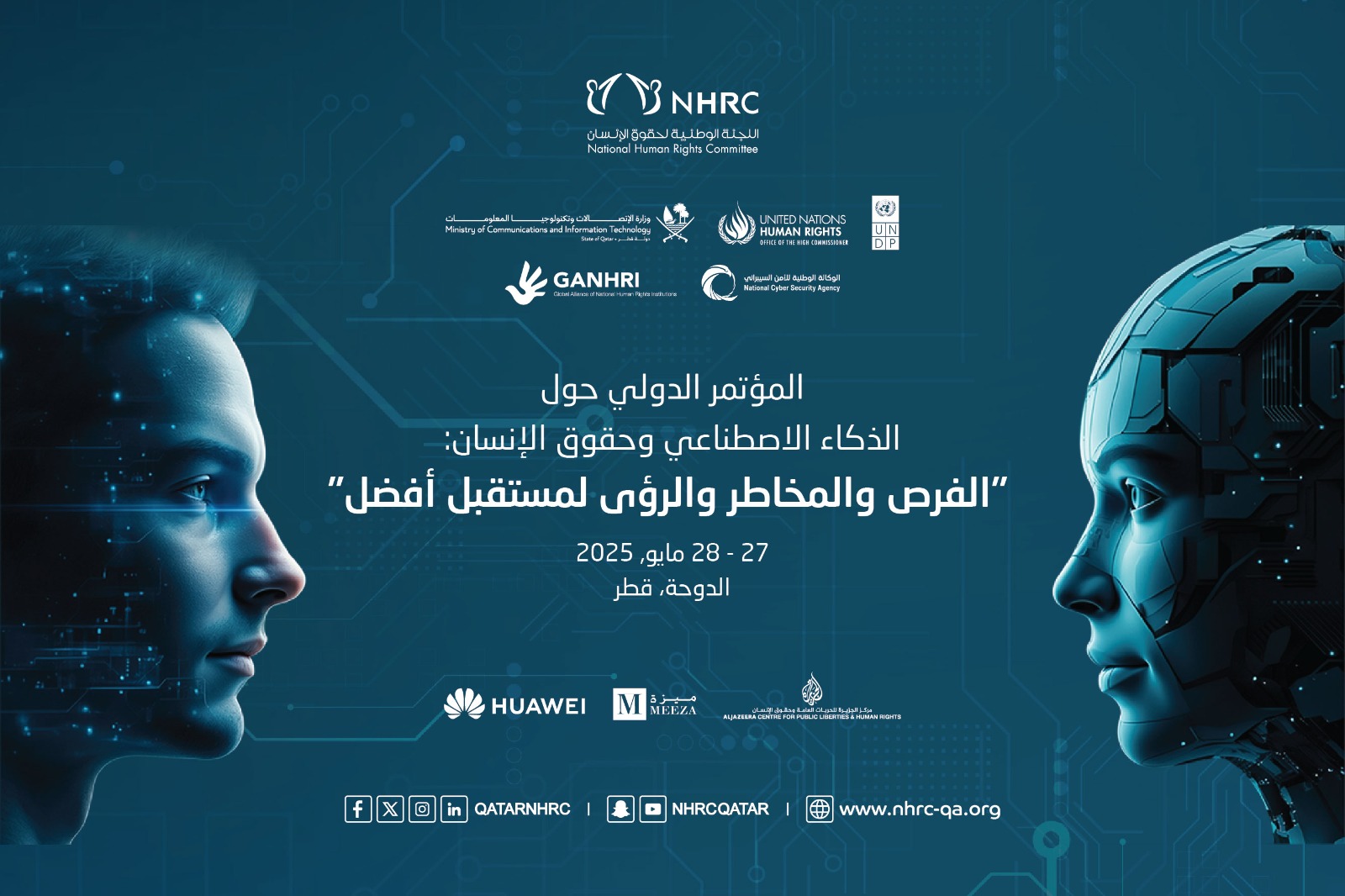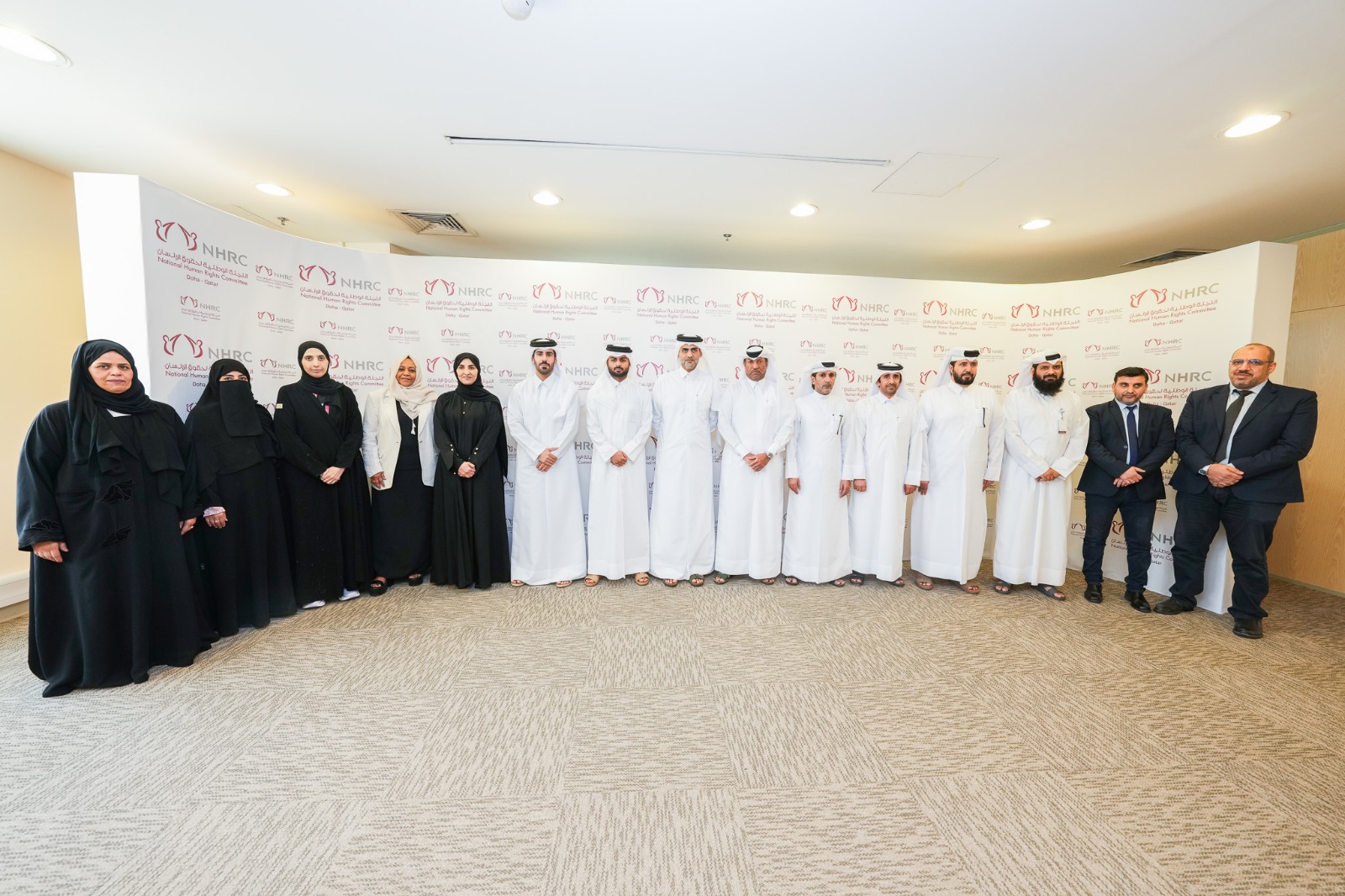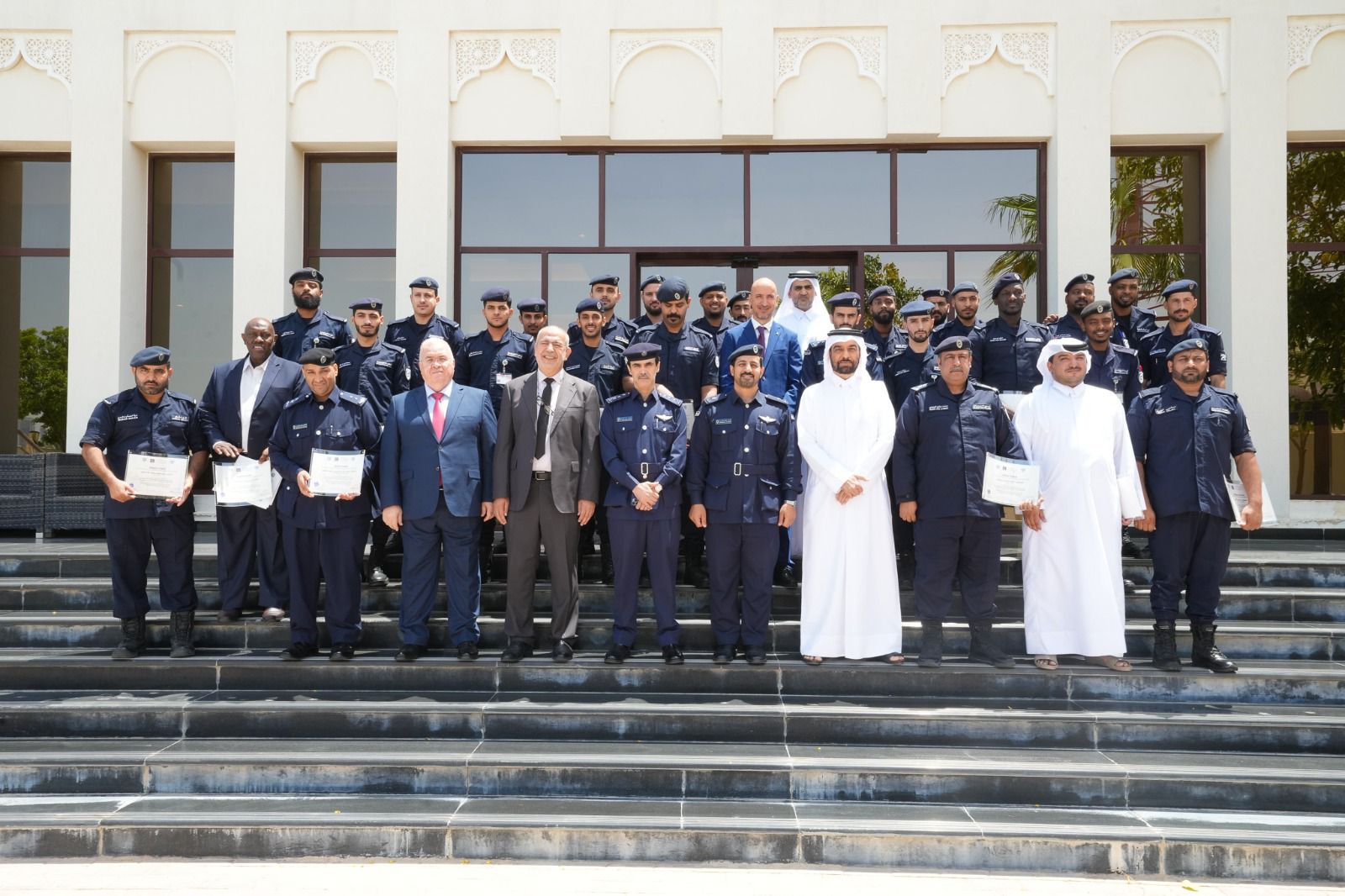الرجوع الى الأخبار
In collaboration with the General Secretariat of the Council of Arab Interior Ministers, the NHRC organizes the second Conference on the challenges to security and human rights in the Arab region in Tunisia
The NHRC organizes in collaboration with the General Secretariat of the Council of Arab Interior Ministers the second Conference on the challenges to security and human rights in the Arab region at the headquarters of the General Secretariat of the Council in Tunisia in the framework of the implementation of the recommendations of the first conference organized by the NHRC in Doha in November of 2014 and co-organized by the League of Arab States, the General Secretariat of the Arab Ministers, the UN Office of the High Commissioner for Human Rights, and the Arab Network of National Human Rights Institutions.
Dr. Ali bin Smaikh Al Marri, Chairman of the NHRC stated during a meeting with Dr. Mohammed bin Ali Kuman, secretary general of the Council of Arab Interior Ministers "organizing the second International Conference on the challenges to security and human rights in the Arab region comes in the framework of the implementation of the recommendations of the first conference, which was held in Doha, and the positive interaction at the regional and international levels, from governments and civil society organizations. Al Marri added that the importance of the First Conference, its success and the sensitive phase in which it took place requires us to develop appropriate and effective mechanisms to implement its recommendations. Al Marri stressed that terrorism is one of the greatest violation of human rights and people's lives, however combating terrorism should rely on approaches, legislation and legitimate mechanisms that are consistent with human rights standards, and safeguard the rights of individuals and communities.
Al Marri stressed that what is going through the Arab world during the past few years, linked to terrorism, in the light of today's international community agreement on the need to fight terrorism, makes it important to follow-up on the impact of the security challenges to human rights that was raised at the first conference, and the way to promote these rights without affecting the security of the Arab states, without considerung national security a justification for the violation of human rights. Al Marri extended thanks to the Secretary General of the Council of Arab Interior Ministers for the great interest and prompt response to the follow-up and implementation of the recommendations of the first conference. Both sides stressed the need to establish a joint working group to discuss the merits of all the scientific and logistical organization of the second conference in Tunisia. Al Marri pointed out that in the same context, the NHRC in cooperation with the Arab Commission on Human rights (Committee on the Charter) of the League of Arab States shall organize a seminar for members of the Committee and all the competent bodies at the Arab League on the integration of the recommendations of the first International Conference on challenges to Security and Human Rights in the reporting mechanisms discussed by the Committee with the State parties to the Arab Charter on Human Rights in 2004.
Dr. Mohammed bin Ali Kuman, secretary general of the Council of Arab Interior Ministers extended thanks to HH Sheikh Abdullah bin Nasser bin Khalifa Al Thani, Prime Minister and Minister of the Interior on the patronage of the first conference and the unlimited interest in security issues in the Arab region and its balance with and human rights issues, and stressed the strong partnership between the General Secretariat of the Council of Arab Interior Ministers and the NHRC, pointing out that the second conference on challenges to security and human rights in Tunisia shall bring together human rights officials at interior ministries in the Arab countries due to the great attention given to this issue on the Arab and international level that encourages some Arab countries, including Qatar, to establish specialized Human Rights departments at the interior Ministries. This mechanism is a clear indication to the respect of law enforcement for human rights and achieve the required balance of them while maintaining security and stability
الصور






